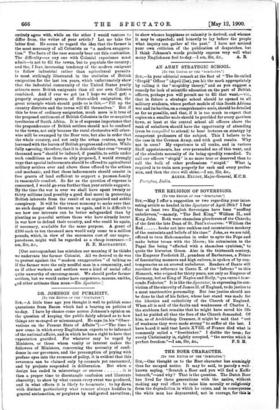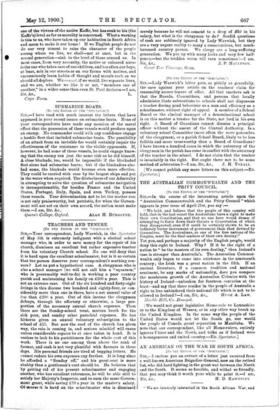THE BOER CHARACTER.
[TO THE EDITOR OP TER "SPECTATOR."]
SIE,—One thought as to the Boer character has seemingly thus far escaped notice. It may be said, to parody a well- known saying, "Scratch a Boer and you will find a Kaffir beneath,"—and why ? That is the question. The Dutch Boer has lived for three generations with the native, without making any real effort to raise him morally or religiously from the degradation in which he exists, anal in consequence the white man has degenerated, not in courage, for this is r• one of the virtues of the native Kaffir, but has sunk to his (the and mean to make it our home ! If we English people do not among whom we live, we shall—not at once, but in the raffles) level as far as morality is concerned. What a warning is this to us, who have taken up our habitation in South Africa do our very utmost to raise the character of the people second generation—sink to the level of those around us. In most cases, from very necessity, the native or coloured nurse is the one who takes care of our children, and too often our boys, at least, mix in our streets or on our farms with natives, and unconsciously learn habits of thought and morals such as we should all deplore. We cannot, if we would, live separate lives, end we are, whether we like it or not, "members one of another," in a wider sense than even St. Paul declares —I am,







































 Previous page
Previous page